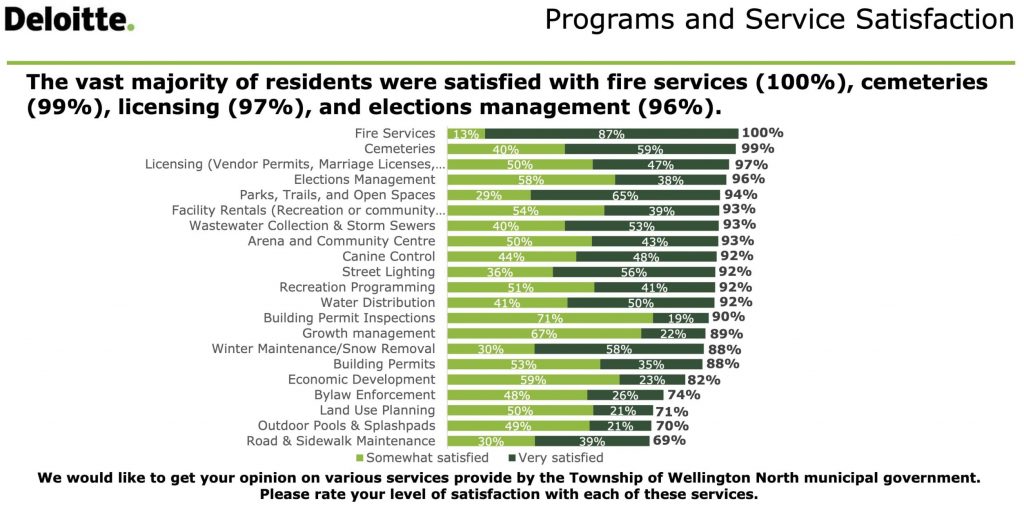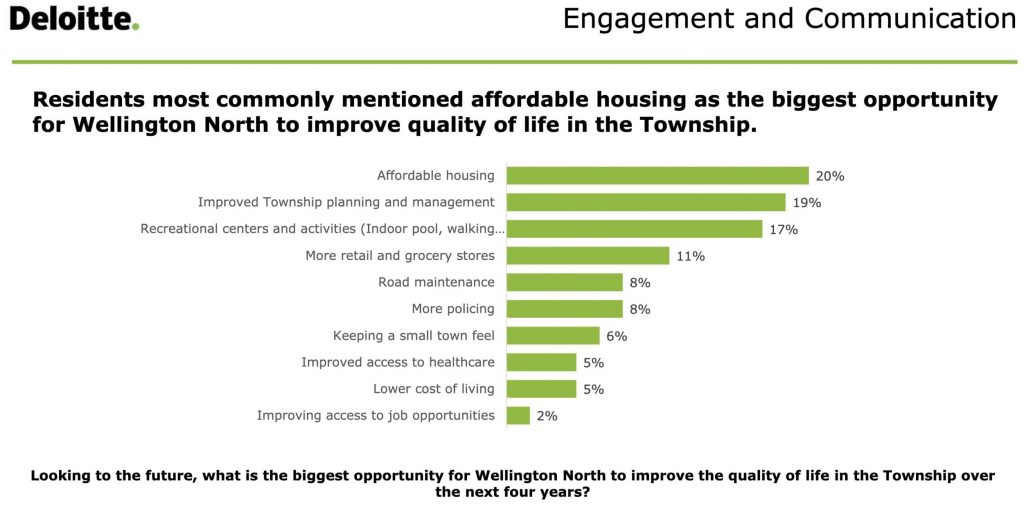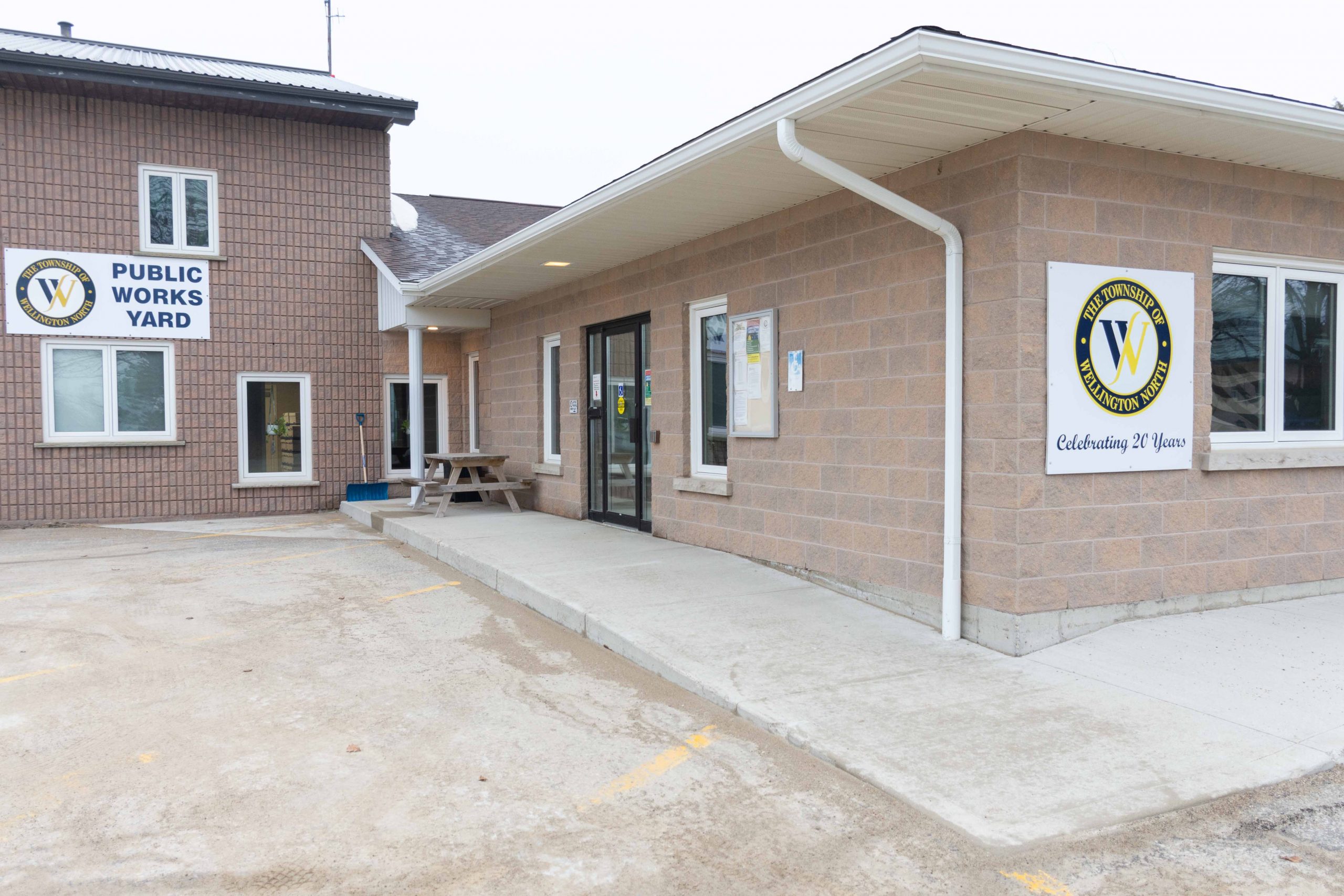KENILWORTH – Recent results from a survey of some Wellington North residents suggest many are happy with their quality of life in the township.
Deloitte Canada was hired by the township at a cost of $13,000 to conduct 100 targeted phone surveys, along with an online option, in February and March.
CAO Brooke Lambert, who has previous experience working with the firm, said earlier this year the survey would provide insight into priorities the township needs to focus on as it embarks on updating its strategic plan.
“We’re in a period of transition and we’re trying to figure out where we’d like to go,” Lambert told the Community News in February.
Deloitte managing economic advisory director Chris Bandak presented the firm’s findings to Wellington North council during an April 3 meeting.
Results will help the township to understand where its priorities should be, where services can be improved, and guide future decisions and budgeting, Bandak told councillors.
Despite having results from 260 completed online surveys, Bandak focused solely on the “scientific sample” of 100 surveys completed by phone, saying the results are presented with a 95 per cent confidence level, and are representative of the township’s population.
It’s worth noting not all survey questions were responded to in either format.
Online survey results tend to be more negative and “polarized,” Bandak said, leading to a negative effect on a survey’s outcome.
Indeed, online survey results suggested satisfaction levels were lower across the board, in some cases dramatically so, ranging between 14 and 22 percentage points lower than those reported via the phone survey.
Bandak didn’t touch on the online survey results, instead largely focusing his presentation on positive aspects from the phone surveys, though a copy of the online data was provided in council’s meeting agenda package.
Speaking to the phone surveys, Bandak said results were “extremely” positive — some of the highest he has seen in more than a decade.
According to Deloitte’s data, 97% of the township’s residents are either “somewhat” or “very” satisfied with their quality of life in Wellington North.
When it comes to services provided by the township, such as water distribution or recreation, 96% of residents stated they are somewhat or very satisfied.
Broken down further, satisfaction rates for each service offered range between 70 and 100%.
At the high end was fire services, with a 100% satisfaction level.
Cemeteries, licensing, elections and parks, trails and open spaces also comparatively scored high, with satisfaction levels ranging between 94 and 99%.
At the lower end of the service spectrum were outdoor pools, road maintenance and land use planning, with satisfaction levels ranging between 69 and 71%.

Wellington North council meeting agenda package image
Bandak presented a “priority matrix” that weighs how services are likely to affect overall satisfaction levels.
The top five categories most likely to affect residents’ overall satisfaction levels were, in order of influence: parks, trails and open spaces; roads repair and maintenance; recreation programming; wastewater collection; and licensing, relating to things like vendor permits.
Road maintenance and repair was most mentioned by respondents as a priority area for the township to focus on (by comparison, recreation, activities and events were most selected as the priority focus by online respondents).
The next priorities, according to the phone results, were policing, a community pool and improved communication about changes in the community.
“At the end of the day, nobody likes taxes,” Bandak remarked.
And yet, when presented with three options for tax increases, 71% of phone respondents were in favour of increasing taxes to pay for maintaining or slightly expanding service levels provided by the township.
Of the total respondents, 29% said they would prefer taxes were increased below inflation levels, even if it resulted in decreased services.
The majority of respondents (62%) scored the value for their tax dollars as “fairly good” and 11% said the return on their money was poor. The remaining 27% felt “very good” about the value of services offered in return.
Most (81%) said the township provides sufficient opportunity and information for meaningful participation and engagement, whereas 19% disagree on some level with that sentiment.
Respondents most prefer a newsletter or mail to engage with the township.
Few chose newspapers as a preferred communication method until it came to receiving township information, where the Community News scored in the top four preferred methods, among others such as newsletters and email.
Housing affordability was chosen as the key priority to improve quality of life in the community, followed by planning and management improvements, and recreation centres and activities.

Wellington North council meeting agenda package image
Less than 1% of the township’s 12,431 residents were surveyed by phone, but Bandak maintained the results are proportional to Wellington North’s population.
Increasing the sample size to a greater number, he said, would decrease a margin error of nearly 10% but would not change the accuracy of results.
“The results would look exactly the same,” Bandak asserted.
“The more people you speak to, it doesn’t actually change the results.”
Mayor Andy Lennox found the data to be “great news.”
The presentation was received by council for information, and councillors approved moving on to the next steps in the township’s strategic planning process, including a council workshop that occurred on April 11.



